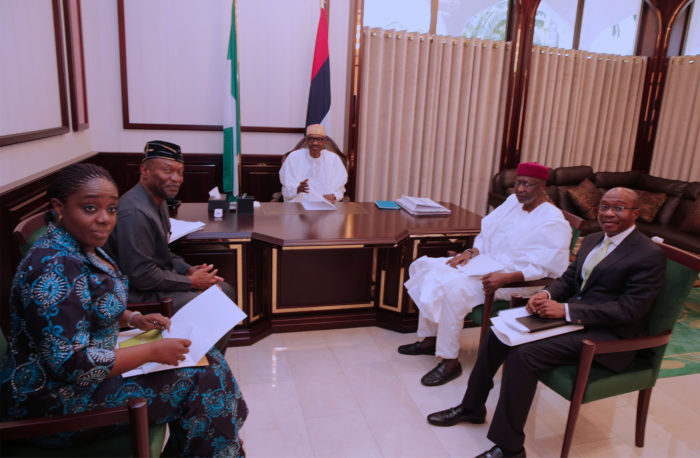The Minister of Finance, Mrs. Kemi Adeosun, has revealed that the Federal Government would apply $3 billion in refinancing the legacy debts of the immediate past government out of the $5.5 billion foreign loan being sourced from the international financial markets.
She may have further declared that the country is broke as it cannot generate enough revenue to pay salaries of workers and still finance capital projects.
The minister stated while speaking on the Arise Television breakfast programme where she provided insight into the country’s debt portfolio, with a particular reference to the new $5.5 billion line of credit being sought by the Federal Government.
The information is contained in a statement by the minister’s Media Assistant, Mr. Olayinka Akintunde.
“The government has adopted an expansionary fiscal policy with an enlarged budget that will be funded in the short term, by borrowing,” the statement said, indicating the country’s precarious liquidity situation.
“The minister said the proposed $5.5 billion loan is made up of two components – refinancing of heritage debts to the tune of $3billion and new borrowing of $2.5 billion for the 2017 budget. The first component of $2.5 billion represents new external borrowing provided for in the 2017 Appropriation Act to part-finance the deficit in that budget.
“The borrowing will enable the country to bridge the gap in the 2017 budget currently facing liquidity problem to finance some capital projects,” the statement added, confirming the fear that the country’s revenue situation is not in good standing.
Only three months ago, at a seminar organised by the Revenue Mobilisation, Allocation and Fiscal Commission (RMAFC), Vice President Yemi Osinbajo, then acting president, raised the alarm that the country’s revenue generated might not be able to fund capital votes unless there was a minimum monthly revenue generation of N700 billion shared at the monthly Federation Accounts Allocation Committee (FAAC) by the three tiers of government.
“For the second component, we are refinancing existing domestic debt with the $3 billion external borrowing. This is purely a portfolio restructuring activity that will not result in any increase in the public debt,” Adeosun disclosed during the programme.
According to her, the country’s debt puzzlingly rose from N7.9 trillion in June 2013 to N12.1 trillion in June 2015, despite the fact that only 10 per cent of the budget was allocated to capital expenditure when oil price exceeded $120 per barrel.
She noted that the President Buhari-led administration was investing in critical infrastructure such as roads, rails and power in order to deliver a fundamental structural change to the economy that would reduce the nation’s exposure to crude oil.
“Under this dispensation, we are not borrowing to pay salaries. If all we do is to pay salaries, we cannot grow the economy. This administration is also assiduously working to return Nigeria to a stable economic footing. In the light of this, the government adopted an expansionary fiscal policy with an enlarged budget that will be funded in the short term, by borrowing,” Adeosun stated.
She reassured that the $5.5 billion foreign borrowing is consistent with the nation’s debt management strategy, whose main objective is to increase external financing with a view to rebalancing the public debt portfolio in favour of long-term external financing.
“Nigeria’s debt to Gross Domestic Product (GDP) currently stands at 17.76 per cent and compares favourably to all its peers. The debt to GDP ratio for Ghana is 67.5 per cent, Egypt is 92.3 per cent, South Africa (52 per cent), Germany (68.3 per cent) and United Kingdom (89.3 per cent).
“Nigeria’s debt to GDP ratio is still within a reasonable threshold. This administration will continue to pursue a prudent debt strategy that is tied to gross capital formation. This will be attained by driving capital expenditure in our ailing infrastructure which will in turn, unlock productivity and create the much-needed jobs and growth,” the minister added.

